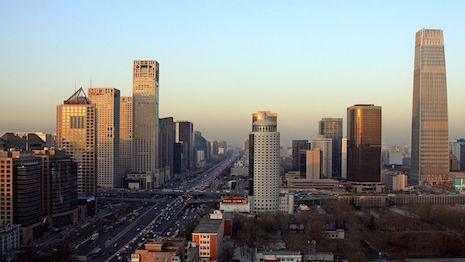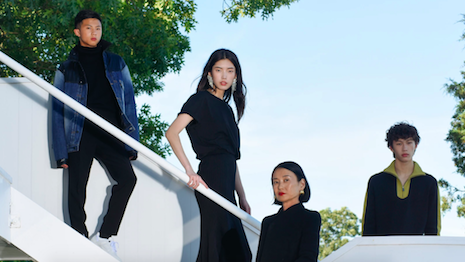 Half of China's wealth is controlled by 200 individuals and families. Image credit: Mandarin Oriental
Half of China's wealth is controlled by 200 individuals and families. Image credit: Mandarin Oriental
While the number of ultra-wealthy Chinese consumers has declined for the first time since 2012, the population of individuals with net worths of more than $290 million is actually greater than it was five years ago.
Nearly 1,900 individuals appeared in Hurun’s annual “Richest People in China Index,” an 11 percent decline from the 2017 edition of the report. The top 10 names alone account for 10 percent of the list's wealth.
Chinese ultra-affluents
Although 881 individuals or families saw their wealth grow, 1,012 saw their wealth stay stagnant or decline. Another 456 individual dropped off the list altogether, the most in the history of the index.
China's slowing economy and trade issues with the U.S. have contributed to the decline seen in the list. This year's minimum threshold was a net worth of $290 million, or 2 billion Chinese yuan.
In 2017, Hurun reported that there were 2,130 individuals in China worth more than $300 million, which was 74 more people than the previous year (see story).
 Beijing is home to the most Chinese UHNWI. Image credit: Knight Frank
More than a third of the world's billionaires are from China, including 618 billionaires from mainland China. Beijing is the most popular home base for Chinese UHNWI, with 15 percent of those on the index residing in the capital city.
For the first time in its 20-year history, Hurun's index included people who live in China but were not born there. Nineteen such individuals and families made the list.
Beijing is home to the most Chinese UHNWI. Image credit: Knight Frank
More than a third of the world's billionaires are from China, including 618 billionaires from mainland China. Beijing is the most popular home base for Chinese UHNWI, with 15 percent of those on the index residing in the capital city.
For the first time in its 20-year history, Hurun's index included people who live in China but were not born there. Nineteen such individuals and families made the list.
 Women made up 28.7 percent of the individuals on Hurun's list. Image credit: Ssense
In a record high for Hurun, women made up more than a quarter of this year's list. With a net worth of $22 billion, Yang Huiyan of Country Garden remains China's richest woman.
For the second time in four years, Alibaba's Jack Ma is the wealthiest person in China. His wealth grew by $29 billion to $39 billion.
Real estate magnate Xu Jaiyin of Evergrande and Pony Ma of Tencent rounded out the top three.
The average age of China's wealthiest is 55 years old, but millennials and Generation Z are already making an impression. Ten individuals born after 1990 made the list as well as 56 people born after 1985.
Consumption habits
While luxury brands continue to court Chinese millennials, the nation's Generation Z population is coming of age with their own set of tastes and priorities that retailers and marketers need to keep in mind.
Not only do Gen Z Chinese affluents differ from their older counterparts, but they also have different priorities than their parents and grandparents. Despite a reputation of being entitled and self-absorbed, a recent survey from Agility Research found high-spending Chinese youth to be self-aware with a special appreciation for luxury.
The majority of affluent Gen Zers have traveled abroad within the last two years. Eighty-one percent of respondents said exploring new cities was their main priority, followed with 61 percent showing an interest in exploring new natural environments (see story).
As Chinese consumers now account for 32 percent of spend on luxury goods worldwide, even luxury retailers in the United States need to focus on catering to them by understanding the culture and adopting mobile trends.
Chinese travelers look to shopping in the U.S. mostly due to item authenticity, with 40 percent citing this factor as the top reason. This is followed by lower cost at 27 percent, more variety and inventory at 21 percent and store experience at 12 percent (see story).
Women made up 28.7 percent of the individuals on Hurun's list. Image credit: Ssense
In a record high for Hurun, women made up more than a quarter of this year's list. With a net worth of $22 billion, Yang Huiyan of Country Garden remains China's richest woman.
For the second time in four years, Alibaba's Jack Ma is the wealthiest person in China. His wealth grew by $29 billion to $39 billion.
Real estate magnate Xu Jaiyin of Evergrande and Pony Ma of Tencent rounded out the top three.
The average age of China's wealthiest is 55 years old, but millennials and Generation Z are already making an impression. Ten individuals born after 1990 made the list as well as 56 people born after 1985.
Consumption habits
While luxury brands continue to court Chinese millennials, the nation's Generation Z population is coming of age with their own set of tastes and priorities that retailers and marketers need to keep in mind.
Not only do Gen Z Chinese affluents differ from their older counterparts, but they also have different priorities than their parents and grandparents. Despite a reputation of being entitled and self-absorbed, a recent survey from Agility Research found high-spending Chinese youth to be self-aware with a special appreciation for luxury.
The majority of affluent Gen Zers have traveled abroad within the last two years. Eighty-one percent of respondents said exploring new cities was their main priority, followed with 61 percent showing an interest in exploring new natural environments (see story).
As Chinese consumers now account for 32 percent of spend on luxury goods worldwide, even luxury retailers in the United States need to focus on catering to them by understanding the culture and adopting mobile trends.
Chinese travelers look to shopping in the U.S. mostly due to item authenticity, with 40 percent citing this factor as the top reason. This is followed by lower cost at 27 percent, more variety and inventory at 21 percent and store experience at 12 percent (see story).
